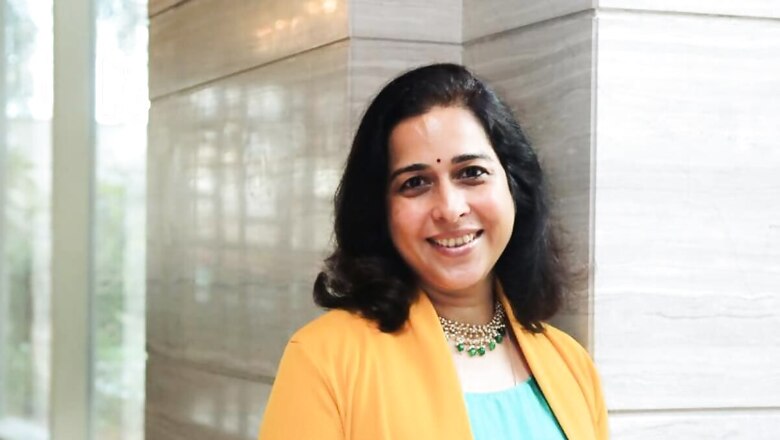
views
Young adults feeling more stressed than before, coupled with an uptick in diseases like hypertension, diabetes, and cancer, is an alarming health trend, Dr Sathya Sriram, CEO, Preventive Health, at Apollo Hospitals told News18.
While discussing the findings from the hospital’s latest annual report called Health of the Nation 2024, Sriram told News18 that India has always been “so proud” of its young demographic dividend. “But if the trend of diseases affecting youngsters continues, India may lose the advantage,” she said.
“One thing that deeply troubles me is observing how young individuals are being affected. Diseases that were once associated with older demographics are now, according to the latest report, manifesting in individuals at a younger age. We are so proud of the demographic dividend, but its true potential can only be realised if we have a healthy population,” she said.
The report, released on Thursday, showed that out of 11,000 persons surveyed between the age group of 18 and 30 years old, 80 per cent reported “significant stress”. Stress levels manifest anxiety, obesity, fatigue, insomnia, lack of stamina and low productivity, said the report.
“Chronic stress poses a significant problem,” she said while adding that “short-term stress can be beneficial, as it motivates and helps us focus, chronic stress over a prolonged period begins to affect other physiological functions.”
“When cortisol levels remain elevated in the body for extended periods, it can lead to metabolic diseases,” she added.
Why it is difficult to convince Indians to opt for preventive screening?
Sriram, who has a PhD in cellular and molecular medicine from Johns Hopkins University, explained that the concept of spending money on prevention and screening is challenging because there is nothing tangible.
For instance, she explained that today, people may be hesitant to spend an additional amount for screening and health check-ups, considering them expensive. However, they fail to put it into context that this expenditure could potentially save them from higher costs in the future if they are diagnosed with cancer, late-stage diabetes, hypertension or other ailments.
“They know what happens with their fixed deposit in the next five years, hence, they put money. Here, they can’t imagine the scenario of investing X amount on their health (for the prevention). Hence, they don’t invest,” Sriram said.
“The intangibility of this concept makes it very hard for people to understand its importance. Only sentiments around health make it very difficult to make preventive care a priority,” she added.
How do we help youngsters?
Sriram believes that India needs to activate people in their 30s and 40s who can connect with the younger generation, not as preachers but as individuals who can share their own experiences.
“People in their 30s and 40s are beginning to feel the repercussions of the choices they have made. They are grappling with challenges such as infertility, pre-diabetes, high blood pressure, and recovering from infections. If they talk about the mistakes they made, for instance, never checking their blood pressure or testing for diabetes until symptoms appear, it could make youngsters more aware of the importance of adopting a healthy lifestyle,” Sriram said.
“Eventually, we need to understand the importance of healthy habits and integrate them into our way of life; otherwise, this ongoing dialogue will persist,” said Sriram who was earlier the director of strategic initiatives at McKinsey & Company before joining Apollo Hospitals in February 2021.
Expectations from the next five years
In a quest to change the mindset of Indians from curative to preventive, Sriram expects that after five years, every individual will be aware of the risks they are prone to, at the very least.
“Although ‘risks’ sounds negative, understanding risks can be positive because it prompts us to mitigate them, ensuring we don’t follow that path,” she said.
Sriram said that she expects the government to allocate more financial resources to prevention and screening programs. “From a government perspective, investing now in screenings may look like an additional burden but eventually, it will cost less than dealing with the massive burden of treating an ever-growing population and diseases.”
She suggested that the government should allocate more funds in the budget to support preventive health, possibly through Community Health Centers (CHCs), while directing more funds from corporate social responsibility (CSR).
She also suggested that some part of it could be solved if the government could propose more tax savings. “There is an opportunity to reconsider tax-exempt limits to incentivise personal investment in health,” she added.
Presently, section 80D includes a deduction of Rs 5,000 for any payments made towards preventive health check-ups.
Applauding Modi government’s move to strengthen and expand community healthcare and wellness centres across India, Sriram highlighted the need for “well-articulated” guidelines on preventive health checkups or screenings.
“There are several guidelines around screening but if there is some way, the government should strongly recommend those. While we cannot mandate them, we should suggest those guidelines in a way that allows corporations, communities, and self-help groups to step up their efforts,” Sriram said.



















Comments
0 comment